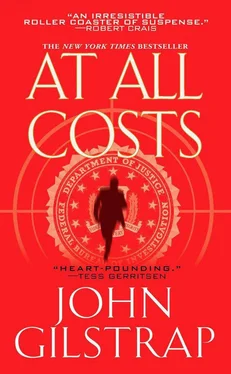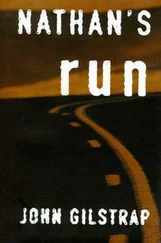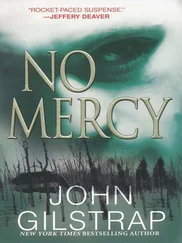John Gilstrap - At all costs
Здесь есть возможность читать онлайн «John Gilstrap - At all costs» весь текст электронной книги совершенно бесплатно (целиком полную версию без сокращений). В некоторых случаях можно слушать аудио, скачать через торрент в формате fb2 и присутствует краткое содержание. Жанр: Триллер, на английском языке. Описание произведения, (предисловие) а так же отзывы посетителей доступны на портале библиотеки ЛибКат.
- Название:At all costs
- Автор:
- Жанр:
- Год:неизвестен
- ISBN:нет данных
- Рейтинг книги:4 / 5. Голосов: 1
-
Избранное:Добавить в избранное
- Отзывы:
-
Ваша оценка:
- 80
- 1
- 2
- 3
- 4
- 5
At all costs: краткое содержание, описание и аннотация
Предлагаем к чтению аннотацию, описание, краткое содержание или предисловие (зависит от того, что написал сам автор книги «At all costs»). Если вы не нашли необходимую информацию о книге — напишите в комментариях, мы постараемся отыскать её.
At all costs — читать онлайн бесплатно полную книгу (весь текст) целиком
Ниже представлен текст книги, разбитый по страницам. Система сохранения места последней прочитанной страницы, позволяет с удобством читать онлайн бесплатно книгу «At all costs», без необходимости каждый раз заново искать на чём Вы остановились. Поставьте закладку, и сможете в любой момент перейти на страницу, на которой закончили чтение.
Интервал:
Закладка:
Frankel’s face turned sour as he regarded the reporter with a look of utter contempt. “I find that question offensive, Brett,” he said, struggling for control. “You just tell those people that they’re wrong.” He pointed to another unseen reporter, and then, before the question could be asked, he turned back to Brett. “I’m the deputy director of the FBI, for God’s sake. How dare you even imply such a thing.” He paused for a long moment, silently daring the reporter to ask a follow-up. When Brett failed to do so, Frankel shifted his eyes again. “I’m sorry, Helen, it was your turn.”
“Mr. Frankel, some fifteen years ago, the perpetrators of the Newark, Arkansas, hazardous waste incident got away on your watch. You yourself have called it the most embarrassing moment in your career. Now here we are again: Jake and Carolyn Donovan were in custody, and your agency lost them yet another time. Any comments, sir?”
As the question was presented, Frankel looked first pained, then a little saddened, and, finally, the tiny edge of a smirk appeared on his lips. “Have I told you how lovely you look today, Helen?” he quipped. Laughter burst among the reporters. When the noise subsided, he was all business again, talking around a boyish grimace of embarrassment. “What can I say? Yes and yes. We have our finest people working on the Donovan case, but as things stand, they’re still at large, and we can use any help that the public is willing to offer to get them back in custody.”
Irene laughed in spite of her hatred for the man. “God, he’s good.”
CHAPTER TWENTY-FIVE
Jake and Carolyn fell silent in the backseat of the Cadillac as Thorne left Little Rock behind and drove closer to Newark. They were only thirty miles out now, and Jake marveled at how little anything had changed in fourteen years. The road stretched on forever, ahead and behind, raised above the surrounding swamps on an endless ridge of tightly compacted fill dirt. It didn’t seem possible, but he swore that even the billboards were the same. Faded by years of blistering sun and pounding rain, many had aged beyond legibility, but he could still make out the outline of a car here or a washing machine there. A roadside bar advertised “B er On Pr mis s” for the benefit of any passersby who wanted to get tanked before they continued on into hell.
“I swear to God those same letters were burned out last time,” he said, pointing.
All Carolyn could do was shake her head. They had no business being here, she told herself. As they drew ever closer to the origins of their nightmare, the plan began to feel progressively more foolish. Certainly, Harry could have helped them to disappear one more time.
“What is this place?” Travis asked, his voice heavy with disdain. His folks had dragged him to some god-awful spots over the years, but this was worse than any three of them put together.
Soon they found themselves passing through a downtown area, such as it was, and approaching a squatly brick post office ahead on the left.
“This place look familiar?” Thorne asked from up front. It was the first time he’d spoken since releasing his passengers from the trunk six hours before.
Carolyn gasped as it came to her. “This is where you picked us up the last time.” As she spoke, she squeezed Travis’s hand.
“Never thought I’d be back here,” Thorne grumbled.
“Makes two of us,” Jake agreed. “At least this time I’m dry and nearly clean.” About three hours ago, they’d stopped for a brief roadside bathroom break and clothes change.
Planted as he was between his parents in the backseat, Travis had to crane his neck to see the post office as it passed by the window. “So where were you hiding till then?” he asked.
Jake pointed with a sweeping motion of his hand. “Up there in the woods somewhere,” he said. “Not a lot different than last night, really.”
“Except colder and scarier,” Carolyn corrected. “God, we were scared.”
Travis pondered that for a moment. “Okay,” he said, as if settling an argument. “Tell me one more time. Why were you guys at Newark in the first place?” He looked to Jake for an answer, who in turn nodded for Carolyn to take the ball.
Nearly a century of prosperity in Newark came to a crashing halt in 1964, when President Lyndon Johnson shut down the 75,000-acre Ulysses S. Grant Army Ammunition Plant as part of one of the most expensive temper tantrums in history. In retribution for the incumbent governor’s refusal to integrate his state’s public schools, the Grant Plant was only one of countless federal facilities shut down, and the only one never to reopen.
Just like that, virtually overnight, the town of Newark died.
Until Harold Davis discovered a faint pulse. A twenty-something trust-funder back in the midseventies, Davis recognized the opportunity buried amid the local tragedy. Where everyone else saw endless acres of ugly, abandoned real estate, this ambitious entrepreneur saw a ready-made industrial plant, just waiting for the right customer. Moving quickly, and with great secrecy, he talked the bank out of enough cash to purchase all 75,000 acres for $5 million.
Harold Davis did nothing with the land itself for the better part of a decade, watching nervously as the market for Arkansas real estate plummeted, even as it went through the roof in the rest of the world. He never panicked, though. He knew in his heart that one day his patience would spell profit.
Finally, his dreams came true. The biggest peacetime military buildup in history began in 1981, when Ronald Reagan set out to resurrect the American armed forces from the smoldering ashes left by the Carter administration. Defense contractors sprouted like so many weeds in a garden, each of them fighting for a piece of the mass-destruction business.
Harold Davis knew instinctively what lay ahead for the CEOs who tried to find acceptance for their line of work in A List communities. Ultimately, weapons programs were about things that explode, and nice neighborhoods would want nothing to do with them. Finally, when the time was just right, Harold Davis stepped forward.
“Why not come to Newark, Arkansas?” he asked. “We’d love to have you.”
The Chamber of Commerce nearly bankrupted itself creating brochures that put the best face on this rural community, and oh, were they pretty. “Newark, Arkansas-An Outdoorsman’s Paradise.” Of course, the buzz-builders didn’t mention that people in Newark hunted and fished not for sport, but for food. The other town motto-“Like a Place from the Past”-translated to oppressive poverty and pervasive filth; where shoes remained unaffordable for a good ten percent of the school population and where dental care required a forty-five-minute car ride to Jefferson County.
None of this mattered in the longer view, of course, and Harold Davis knew it. If companies truly cared about living conditions for their employees, then places like Elizabeth, New Jersey, would have died years ago. Companies cared about money-specifically, about ways not to spend it. As custodians of a thriving weapons machine, the commanders at the Grant Plant had spent billions of dollars to construct thousands of buildings, designed for the specific purpose of developing and processing explosives. Say what you want about the Army, but they built their stuff to last forever.
When Harold made his pitch to boardrooms across the country, he sidestepped the community issues and focused instead on dollars. He offered a turnkey alternative to massive capital expenditure, and civic cooperation instead of endless zoning appeals. Some decisions are just easy.
In the twelve-month period beginning in April 1981, Harold Davis signed lease agreements with every one of the biggest names in the defense industry, worth over $100 million. With months yet to go before his thirty-eighth birthday, he’d made it onto the Forbes 500, and he didn’t have to share his profits with a soul.
Читать дальшеИнтервал:
Закладка:
Похожие книги на «At all costs»
Представляем Вашему вниманию похожие книги на «At all costs» списком для выбора. Мы отобрали схожую по названию и смыслу литературу в надежде предоставить читателям больше вариантов отыскать новые, интересные, ещё непрочитанные произведения.
Обсуждение, отзывы о книге «At all costs» и просто собственные мнения читателей. Оставьте ваши комментарии, напишите, что Вы думаете о произведении, его смысле или главных героях. Укажите что конкретно понравилось, а что нет, и почему Вы так считаете.












